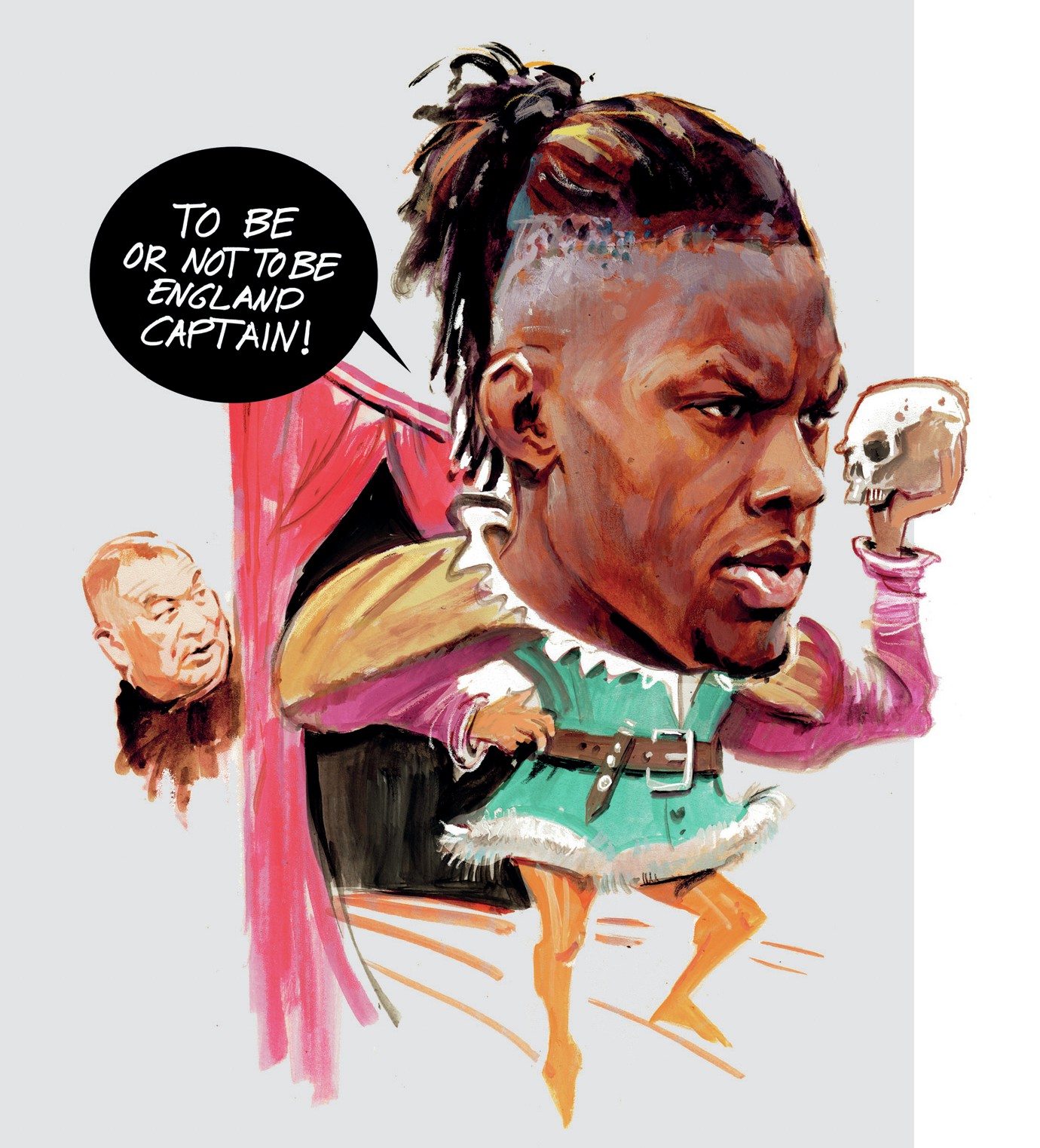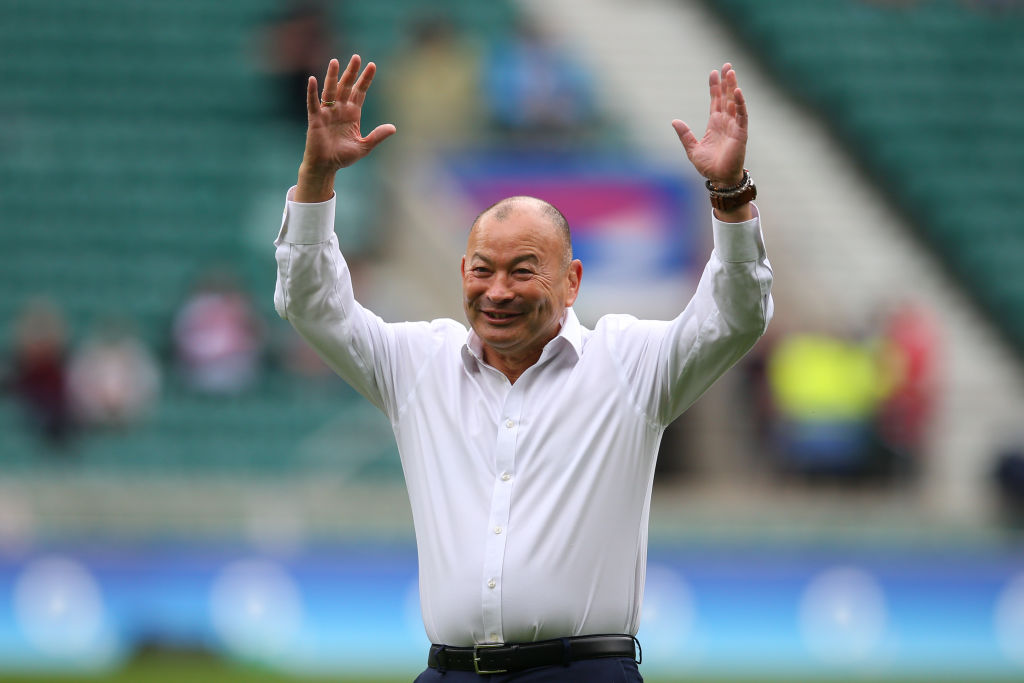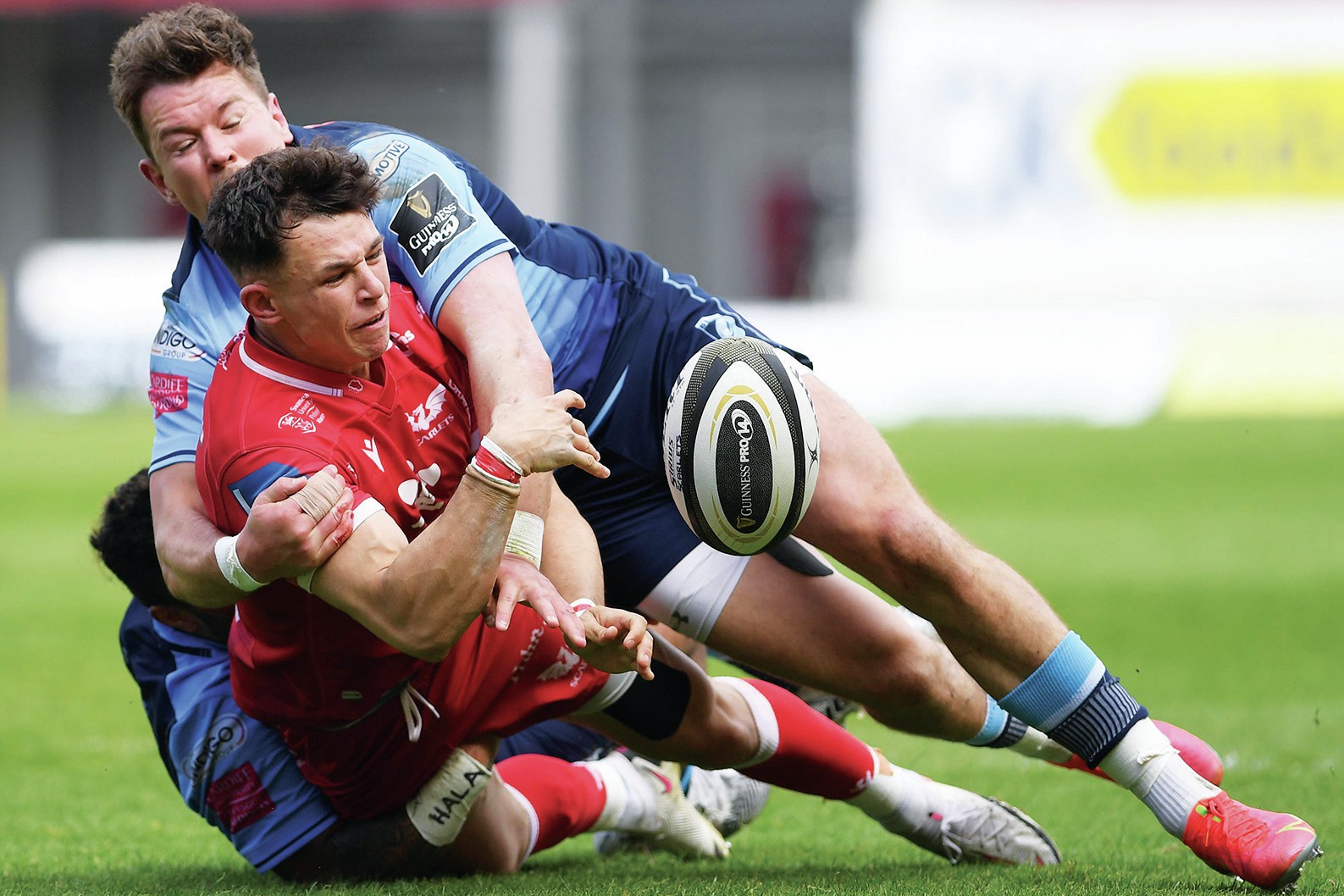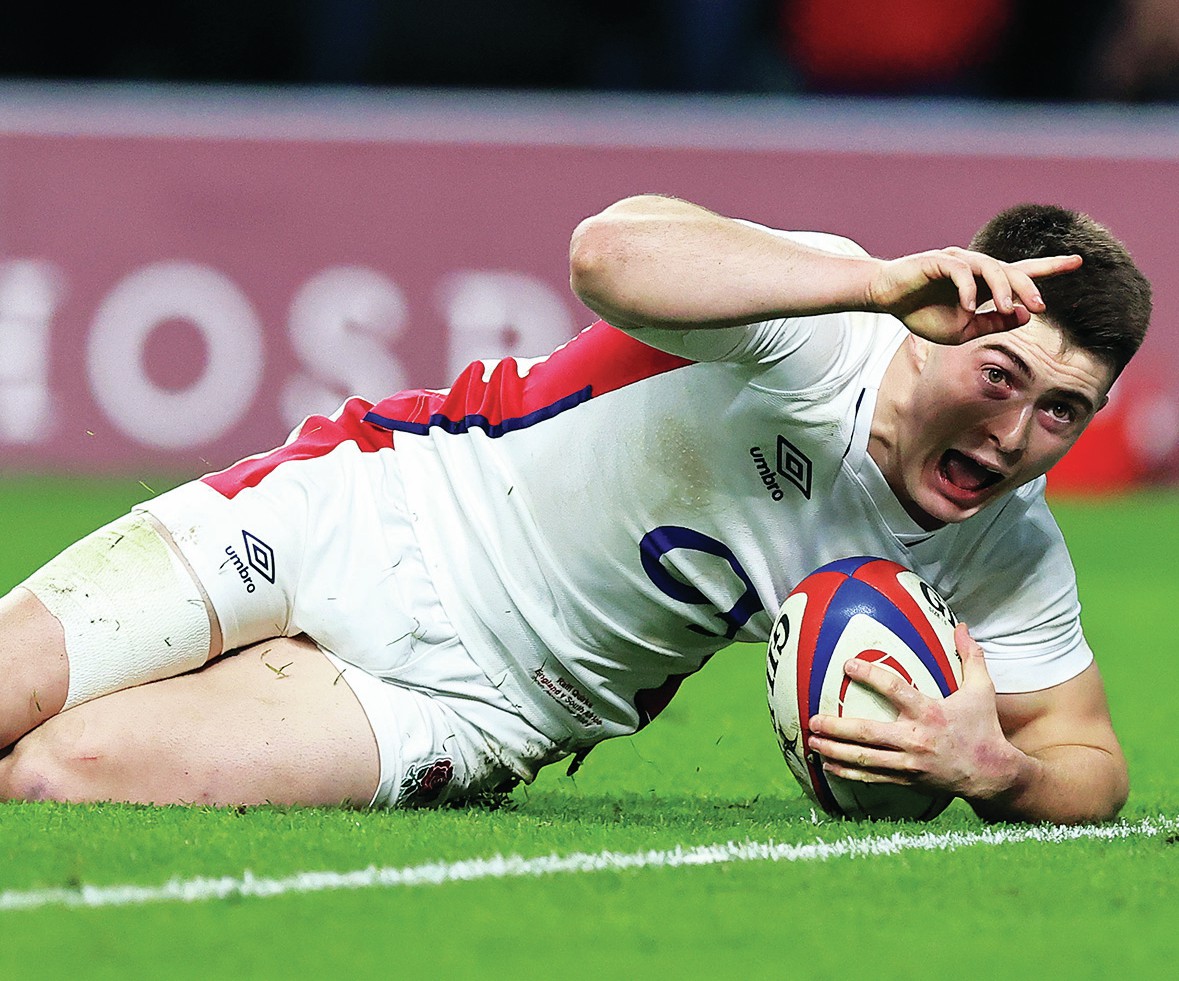
He answered it in typically understated fashion, never imagining why on earth it would be any big deal: “Apart from the family, who’d want to come to my funeral…?”
The answer came flooding in off the Solent last Friday, a red wave which rolled all the way into Holy Trinity on the Isle of Wight and packed the 19th century church in Bembridge to its rafters.
They came by road, rail and air as well as sea, the great and the good, the humble and the meek squeezing into the pews. Some travelled overnight, others had been on the road from three o’clock that morning to make sure they got there on time.
They came to pay their last respects not merely to the scarlet pimpernel of Test rugby in the Fifties, nor the master broadcaster of the ensuing decades but to an outstanding member of the human race.
Nobody put it better than Dame Mary Peters, all the more striking in a red hat worn in response to the family’s wish for everyone to wear a dash of Morgan’s favourite colour.
“Cliff was always giving of himself, every day of his life,” Mary said at the wake in the local sailing club.
“I remember how he dropped everything and came to Belfast with Henry Cooper in 1972 to help raise funds for the athletics track there. Nothing was ever too much trouble.”
A written tribute from the All Black great Bryan ‘Bee-Gee’ Williams in his role as president of the NZRFU emphasized Morgan’s humanity. “He had a wonderful gift for making you feel special because of his warmth and interest in who you were and what you were doing,” Williams wrote. “His passion and his love for the game were very evident but his love and respect for his fellow man was equally evident.”
The mourners, almost 400 strong, included some who knew Morgan from way back, like Goronwy Morgan, his unrelated half-back partner from Swansea in the Welsh Schoolboy team of the late Forties.
Johnny Behan, president of Bective Rangers, travelled from Dublin with past-president Brian Mooney because they have never forgotten what Morgan did for the club when he played for a year in the mid-Fifties, a time which the Welshman called “the most enjoyable of my life, when there was little coaching and few training sessions, when people played because they loved the game”.
The old internationals, many silver-haired, some in their eighties, turned out in force – among them Morgan’s 1955 Lions tour colleague Phil Davies of Harlequins and England; ex-Newport wing Trevor Brewer, Lloyd Williams, Morgan’s Wales half-back partner from the Fifties, Haydn Morgan, another Fifties’ Lion, Alastair Biggar from Scotland.
Two of Morgan’s Welsh fly-half successors, David Watkins and Barry John, were there, rubbing shoulders with Gerald Davies, Clive Rowlands, John Taylor, Geoff Evans and Nigel Walker.
The presidents of the WRU (Dennis Gethin) and the RFU (Bob Reeves) mixed with titans from television like Dickie Davies, Paul Fox and Des Lynam.
To do Morgan full justice at a service of thanksgiving was never going to be easy. Those whom he left behind, notably his widow Pat, a mighty BBC Radio sport figure in her own right, achieved it perfectly from start to finish, an 80-minute tour de force.
It began with the coffin, draped in the Welsh flag and borne by six pall-bearers, arriving to the sound of the London Welsh Male Voice choir raising the roof with Take Me Home, an evocative song of how it used to be in the South Wales coalfield as captured in the opening words: I remember the days of my father as we walked back home from the mine…
They made it sound as though a Welsh chapel had been transported lock, stock and lectern from the harsher landscape of Morgan’s native Rhondda and put together again in genteel Bembridge.
Each speaker dealt with one part of the multi-dimensional Morgan. There was Cliff the rugby man as portrayed by Gareth Edwards: “When I was 12 years old, I bumped into him outside the BBC offices in Cardiff. I said: ‘Can I have your autograph, please?’
“It wasn’t a rush scribble across a piece of paper. It was a conversation. He didn’t know me from Adam but he asked me who I was, what I was doing and where I was going. Little did I realise our lives would be entwined.”
There was Cliff the Welshman as told by Max Boyce and the ageless troubadour provided with a poem composed for the occasion.
On Cliff the broadcaster, Nigel Starmer-Smith outlined Morgan’s journey from “outside-half to outside broadcasts”, the breadth of his range from Workers’ Playtime to These We Have Loved and, best of all, Sport on Four: “He loved it and so did we.”
Jack Morgan, choked back the tears to talk movingly about his ‘Grandad,’ recounting the story of how Cliff defied the convention of the time to attend the wedding
of former team-mate Lewis Jones, then branded an outcast for going north to Rugby League.
Nick Morgan, an orthopaedic surgeon, spoke of his dad as the family man. “I can see Dad being greeted at the gates and St Peter saying: ‘Shwmai Cliffie, butt. Now listen, the boss has been waiting 83 years for this.
‘You see Cliffie, there was a terrible accident just after you were born. He dropped the mould and broke it.
Now, at last, He can make another…’”
Whereupon, the rain stopped and the sunlight came glinting through the church skylights as if Somebody Up There had ensured the best of weather for the best of send-offs.
PETER JACKSON

1 Comment
You must be logged in to post a comment Login
Leave a Reply
Cancel reply
Leave a Reply
You must be logged in to post a comment.

British and Irish Lions
British and Irish Lions told: Beware Australian dirty tricks

International Rugby
George Ford joins 100 club in England victory over Argentina

International Rugby
England 35-12 Argentina: Centurion George Ford leads the way

International Rugby
Will Muir makes the most of his sevens training for England






















Pingback: Click Here